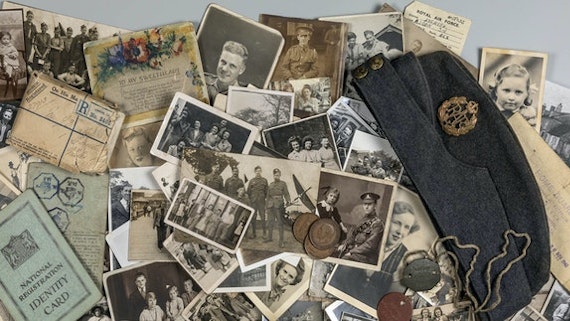A Monumental Crisis: transnational perspectives on public memorialisation
This event has ended.
Contact
Add to calendar

A publicly accessible online roundtable event in dialogue with experts from within Cardiff University and beyond, run by the History and Heritage research theme under the School-wide Crisis and Culture research theme at the School of Modern Languages.
The speakers will include Councillor Daniel De’Ath (Cardiff); Dr Heather Cateau (University of the West Indies); Dr Thomas Leahy (Cardiff University); Professor Sven Saaler (Sophia University); Professor David Clarke (Cardiff University).
The Black Lives Matter protests this summer propelled the issue of controversial monuments into the public domain. The removal of statues in the United Kingdom, the United States, and in Belgium has provoked widespread debate about public commemoration: What is the role of monuments? Who and what should they commemorate? What is the future of memorialisation?
This roundtable adopts a transnational approach to such questions. With dialogue between academics specialising in the study of public memory from across a range of times and places, we will discuss how public attitudes have shaped this form of public memorialisation?
Moderated by Professor Claire Gorrara.
Councillor Daniel De’Ath is ward councillor for Plasnewydd in the Roath area of Cardiff and is currently Lord Mayor of the City of Cardiff. He has previously served as Cabinet Member for Early Years, Children and Families, and as Cabinet Member for Safety, Engagement and Democracy. Prior to his political career, he worked for the National Museum of Wales, and as a researcher for the Welsh Government. Cllr De'Ath will be participating in his capacity as ward councillor.
Dr Heather Cateau is senior lecturer in Caribbean History and Dean of the Faculty of Humanities & Education at the University of the West Indies, St Augustine. She is also President of the Association of Caribbean Historians. Among other works, she is co-editor of Beyond Tradition: Reinterpreting the Caribbean Historical Experience.
Dr Thomas Leahy is a lecturer in British and Irish politics and contemporary history at the School of Law and Politics at Cardiff University. He researches the Northern Ireland conflict and Irish republicanism. His book, The Intelligence War Against the IRA, was published earlier this year by Cambridge University Press. He has also written on 'The Politics of Troubles Memories in the Republic of Ireland and Northern Ireland'.
Sven Saaler is professor of modern Japanese history and Director of the Graduate Program in Global Studies (GPGS) at Sophia University in Tokyo. He has been engaged in research on public statuary in Japan for many years. His work, Men in Metal: A Topography of Public Bronze Statuary in Modern Japan has just been published by Brill.
David Clarke is professor of modern German Studies in the School of Modern Languages at Cardiff University, where he researches the politics of memory in Germany and Europe. He was part of the European Union-funded UNREST (Unsettling, Remembering and Social Cohesion in Transnational Europe) project and is author of Constructions of Victimhood: Remembering the Victims of State Socialism in Germany (Palgrave, 2019).
Cultures of Crisis
The narrator of Ali Smith’s post-Brexit novel Autumn (2016) remarks of the contemporary moment: ‘It was the worst of times, it was the worst of times. Again.’ Smith expresses here not just the sense that the recent past has been perceived in terms of an apparently never-ending series of crises (from the banking crash of 2007-2008 to the current Covid-19 pandemic), but also (with a nod to Dickens) acknowledges that our permanent state of crisis can only be understood as novel if we operate with a very short historical memory.
If Smith is asking us to get some perspective, there may also be an invitation here to interrogate our response to crisis. Originally a term used in medicine to indicate the turning point of a disease, leading to recovering or death, the word contains in its Greek root the verb krinein, meaning to judge or discriminate. So, a crisis is also a moment of decision that, as in the current Covid pandemic, can excite visions of radical change as much as it suggests a terminal decline. Could ‘the worst of times’ in fact lead to ‘the best of times’? And how does crisis help us to imagine those alternatives?
In the academic year 2020-2021, the School of Modern Languages will host a series of events, run by its three research themes, which address the notion of crisis and our responses to it in contemporary and historical perspective. These events will ask how our sense of crisis and its possibilities are constructed in a range of media and discourses. All events will be free and held online, with registration required, and recordings will also be made available on the School YouTube channel.
Simultaneous Translation
The event will be delivered in the medium of English. You are welcome to ask questions in the medium of Welsh during the Q&A session. If you intend to do this, please contact mlang-events@cardiff.ac.uk by Wednesday 23 September to request simultaneous translation. Please note that 10% or more of those planning to attend will need to request this provision in order for it to be sourced and will be subject to resource availability.
Registration
We apologise that the entire registration page is not available in the medium of Welsh. Unfortunately, the platform we use does not offer this service.
Recording of Event
Please note this event will be recorded.